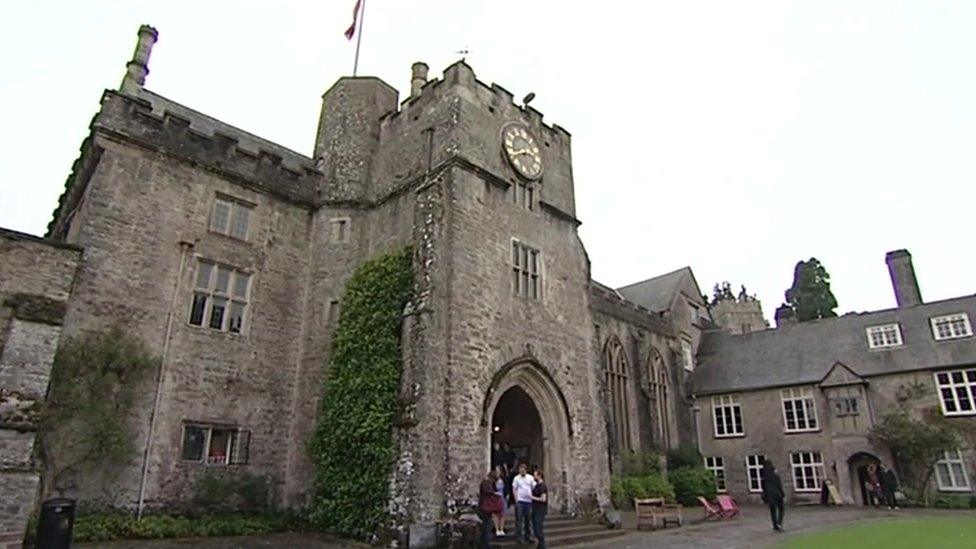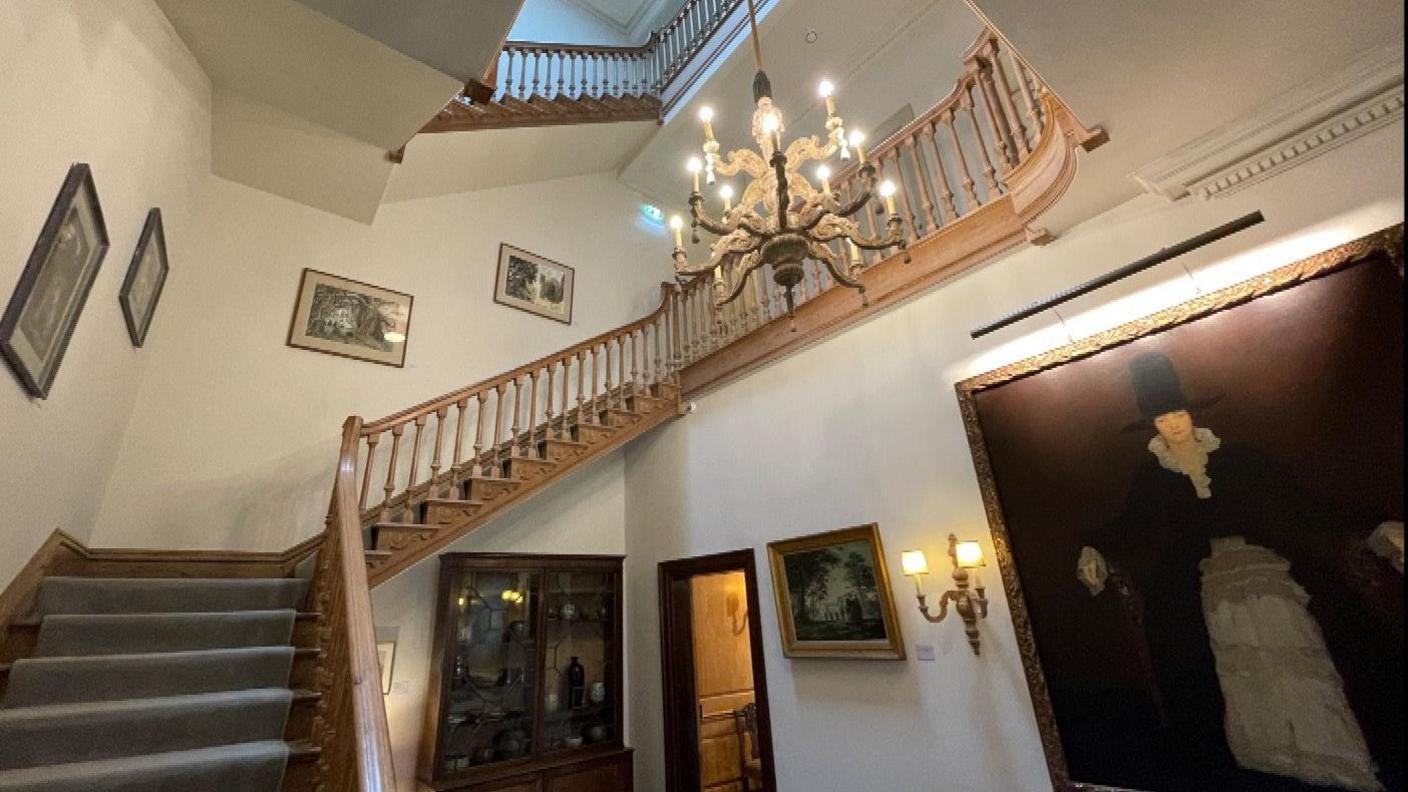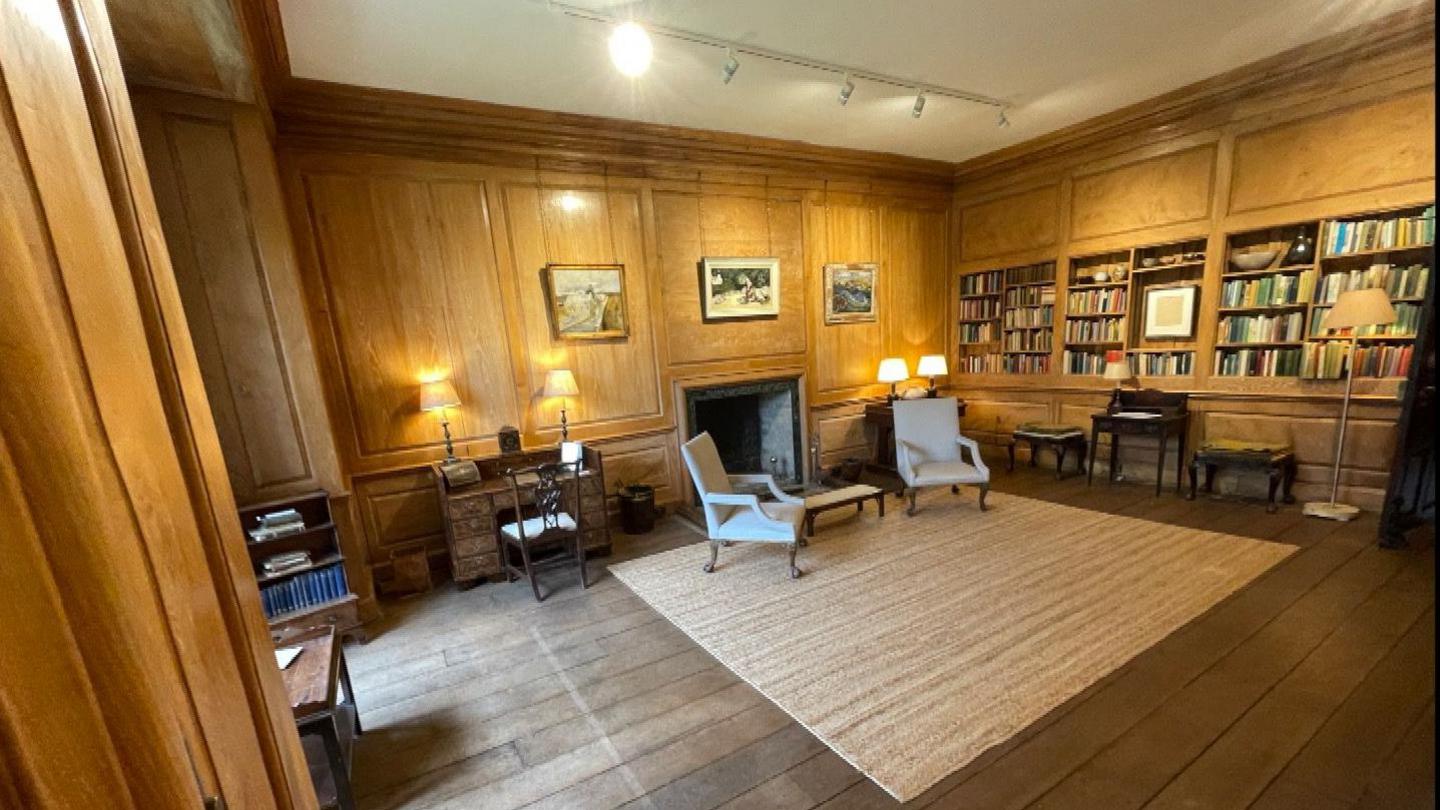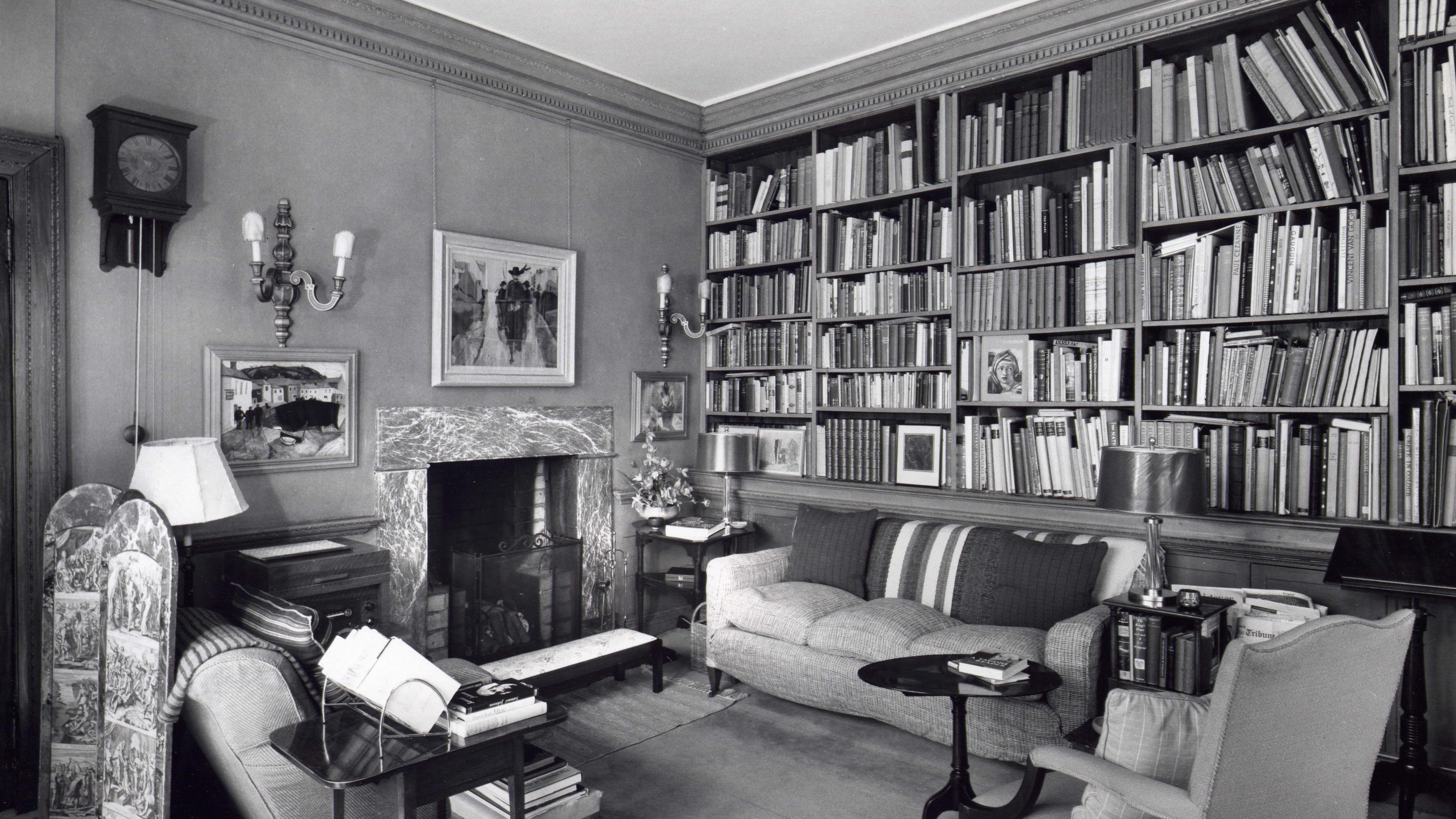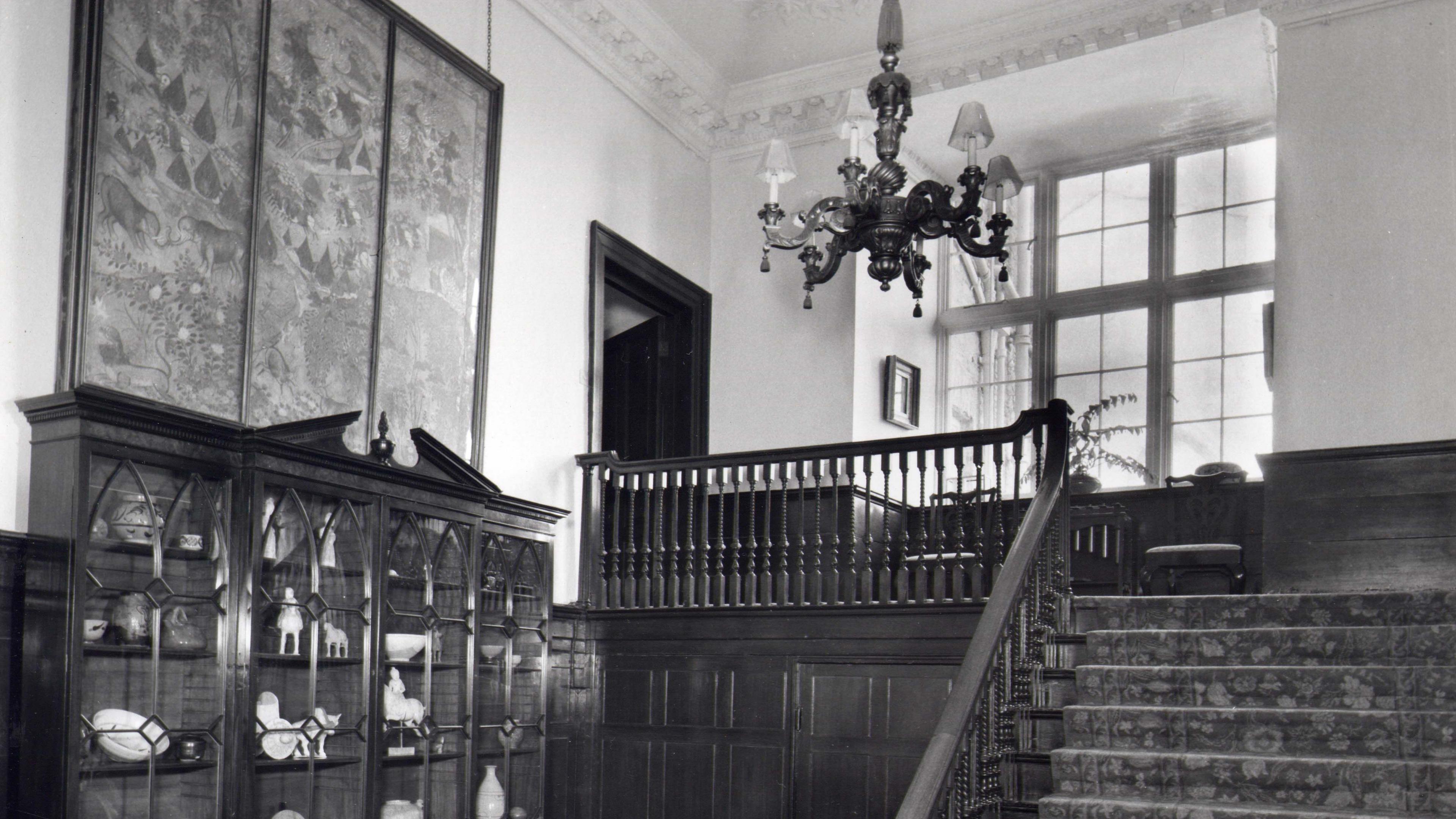Unseen footage brings Dartington's story to life
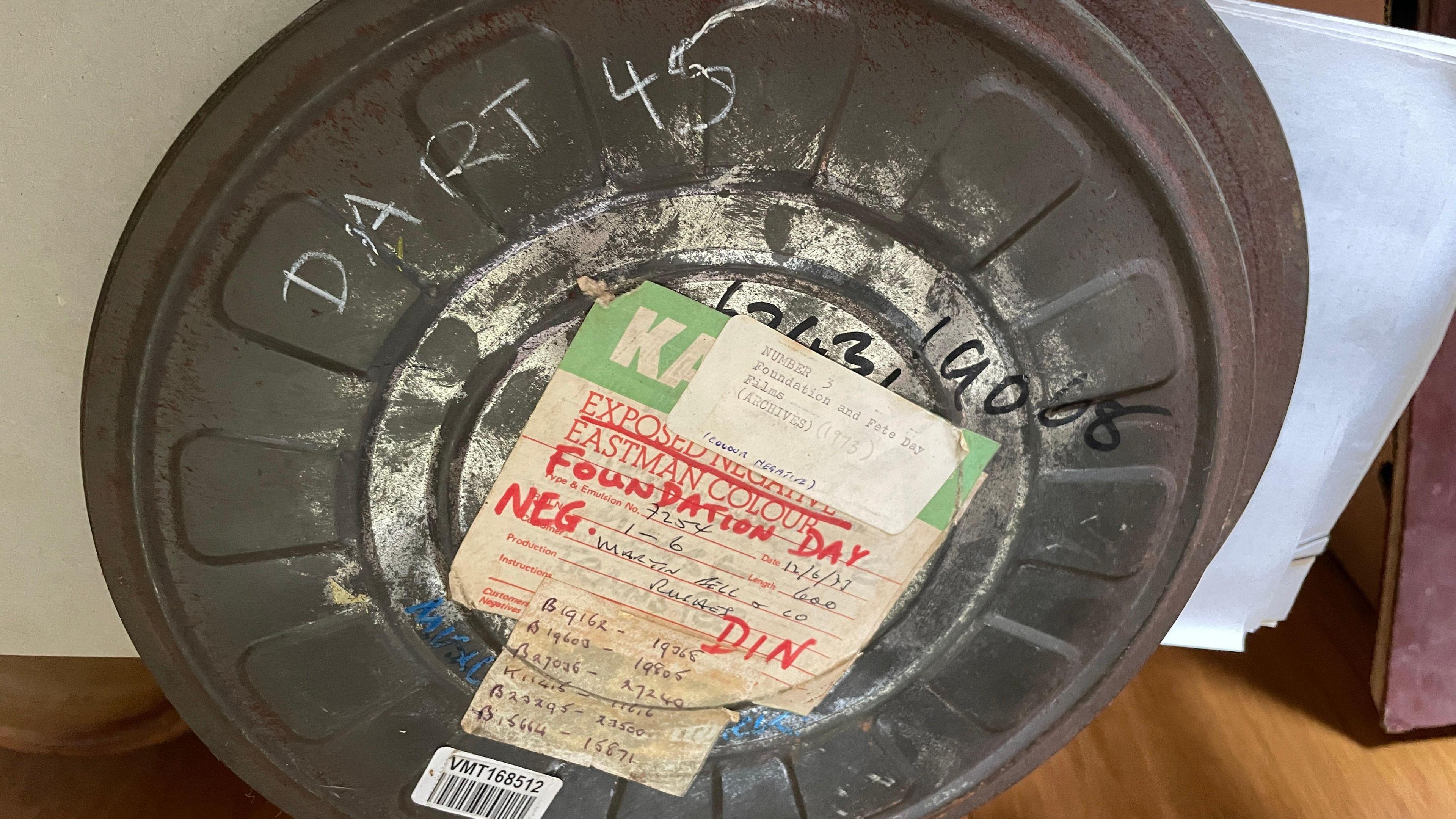
One of the many film reels Peter had digitised so he could create the centenary film
- Published
The story of the wealthy philanthropists who bought a neglected estate in 1925 has been brought to life in a film.
Dartington Hall Trust is celebrating its centenary year with the release of "All Things To All People", a film featuring unseen restored footage from the 1930s and 1940s.
It shows the Elmhirsts' mission to create a centre for education, agriculture and the arts.
The Elmhirst family home has been also opened to the public for the first time and Peter Nicholson, the Trust's arts curator, said: "The treasures that emerged were incredible."
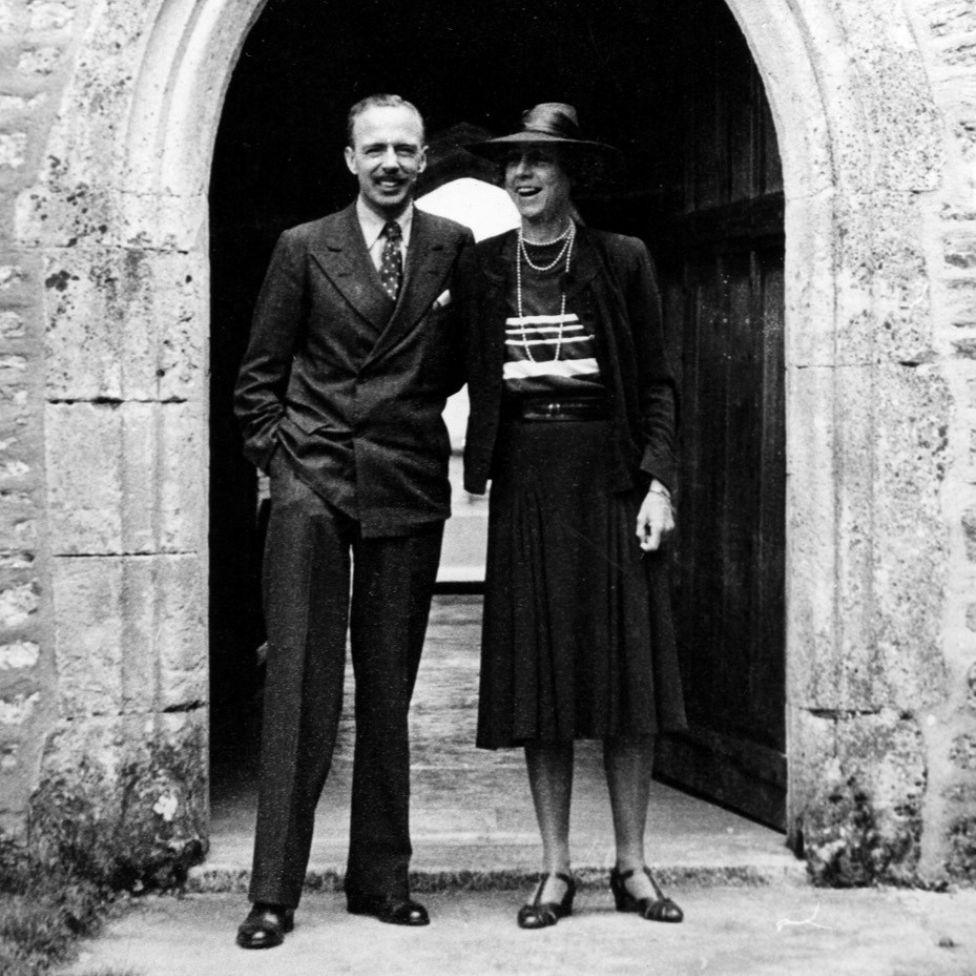
Leonard and Dorothy Elmhirst, who bought Dartington Hall in 1925, are photographed in the 1960s at the entrance to Dartington Hall's private garden
The Trust hopes to highlight the project's role in influencing social and cultural change throughout the 20th Century.
Mr Nicholson used old films from the archive to create the film, and said: "It was pot luck.
"It was a bunch of rusty old film cans - you don't know what you are going to get.
"The labels had all deteriorated. It really was heart in mouth and hope. About 90 percent were OK."
The Trust's Film Unit had documented life on the estate in the 1930s, later filming heritage rural crafts like clog making and weaving, but during the war it made public information films.
An extract from All Things to All People, a Dartington Centenary film
Mr Nicholson said: "The treasures that emerged were incredible.
"Dancing by the Jooss Ballet in the 30's on the lawn here on the estate and the restoration of the roof on the Great Hall are all captured on film."
In 1933, Kurt Jooss fled Germany when the Nazis asked him to dismiss any Jewish staff from his company but he refused.
Finding refuge at Dartington Hall, he opened a dance school.
Mr Nicholson added: "They'd just got out of Essen with the Gestapo on their heels...
"Dorothy (Elmhirst) financed them to get them here and it's so joyous...
"The sense of freedom and joy at getting away from Nazism. You can see it in their faces on the film."
The films were originally silent but audio tapes were found from 1960s of Leonard Elmhirst describing what was on them.
The centenary film edited the two together enabling the public to hear about the Dartington project from one of it's creators.
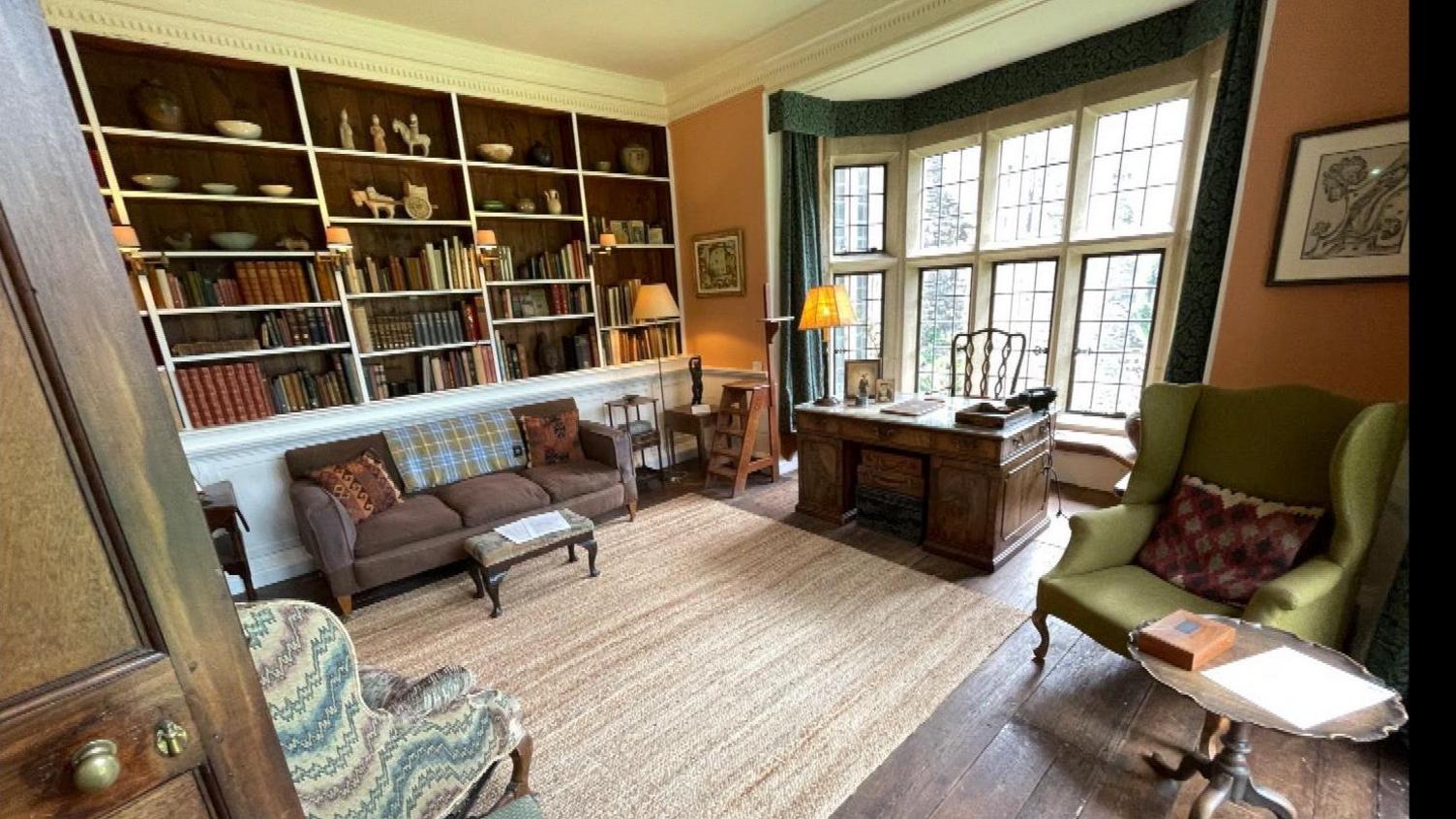
Image caption, Leonard Elmhirst's study has been reconstructed as part of the restored Elmhirst Heritage Centre
1 of 5
It was Dorothy Elmhirst's vast American inheritance which paid for the purchase of Dartington Hall and its restoration in 1925.
The family lived in the house with their children adjoining the Great Hall until the late 1960s but it had not been open to the public.
Using photographs from the end of their time living there, the team found and restored the original furniture.
The ground floor rooms including the Morning Room and Leonard's study have been reconstructed and the public can see them on guided tours.
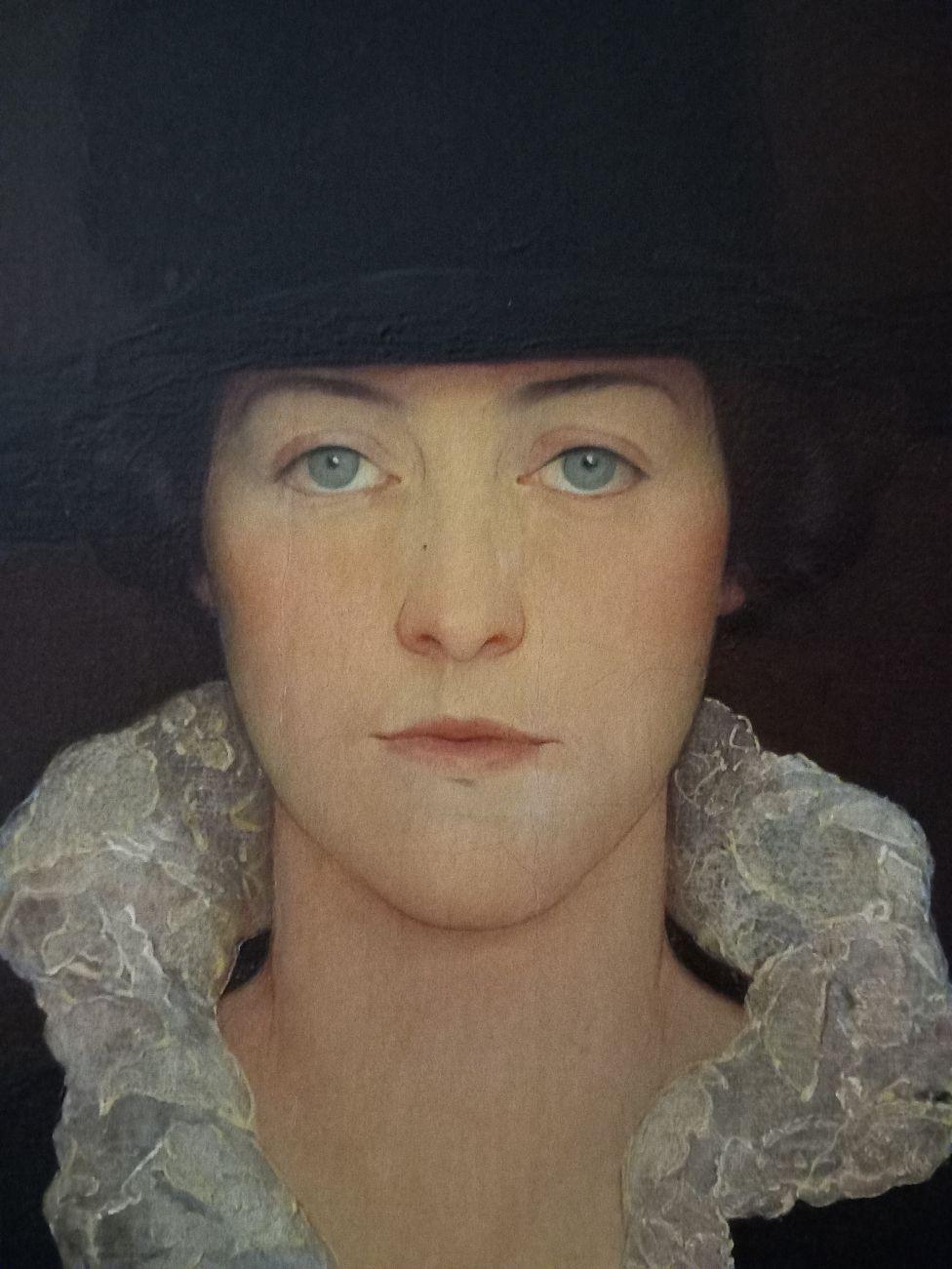
A portrait of Dorothy Elmhirst in ancestral Pilgrim dress by Walter Dean Goldbeck
Upstairs is a gallery which includes 800 art works and 300 ceramics, to be shown in rotation.
Mr Nicholson said: 'We've done this with a very small team on a very small budget...
"In the past the ideas needed big budgets and Dartington didn't have the money to realise it.
"Two years ago Dartington was in a difficult fiscal position but even at that point... I knew we could do this... With just a small team and we did it for a fraction of the cost."
Related topics
- Published1 September 2024
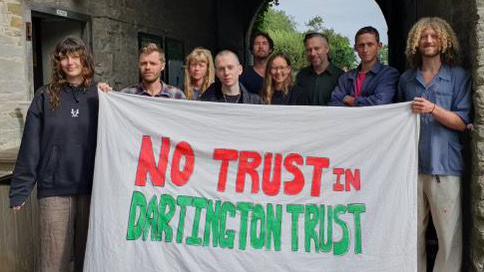
- Published15 November 2023
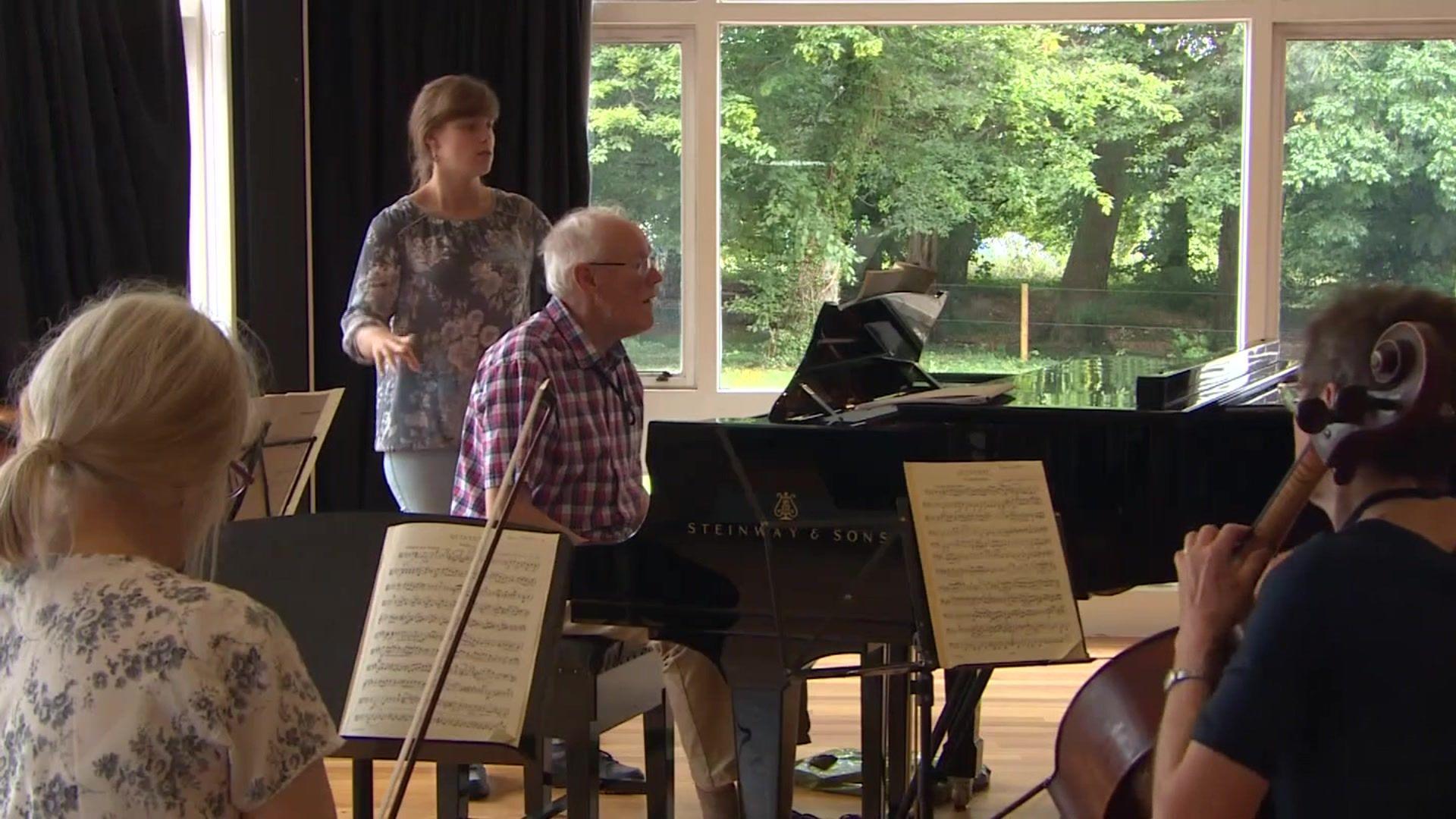
- Published1 November 2023
